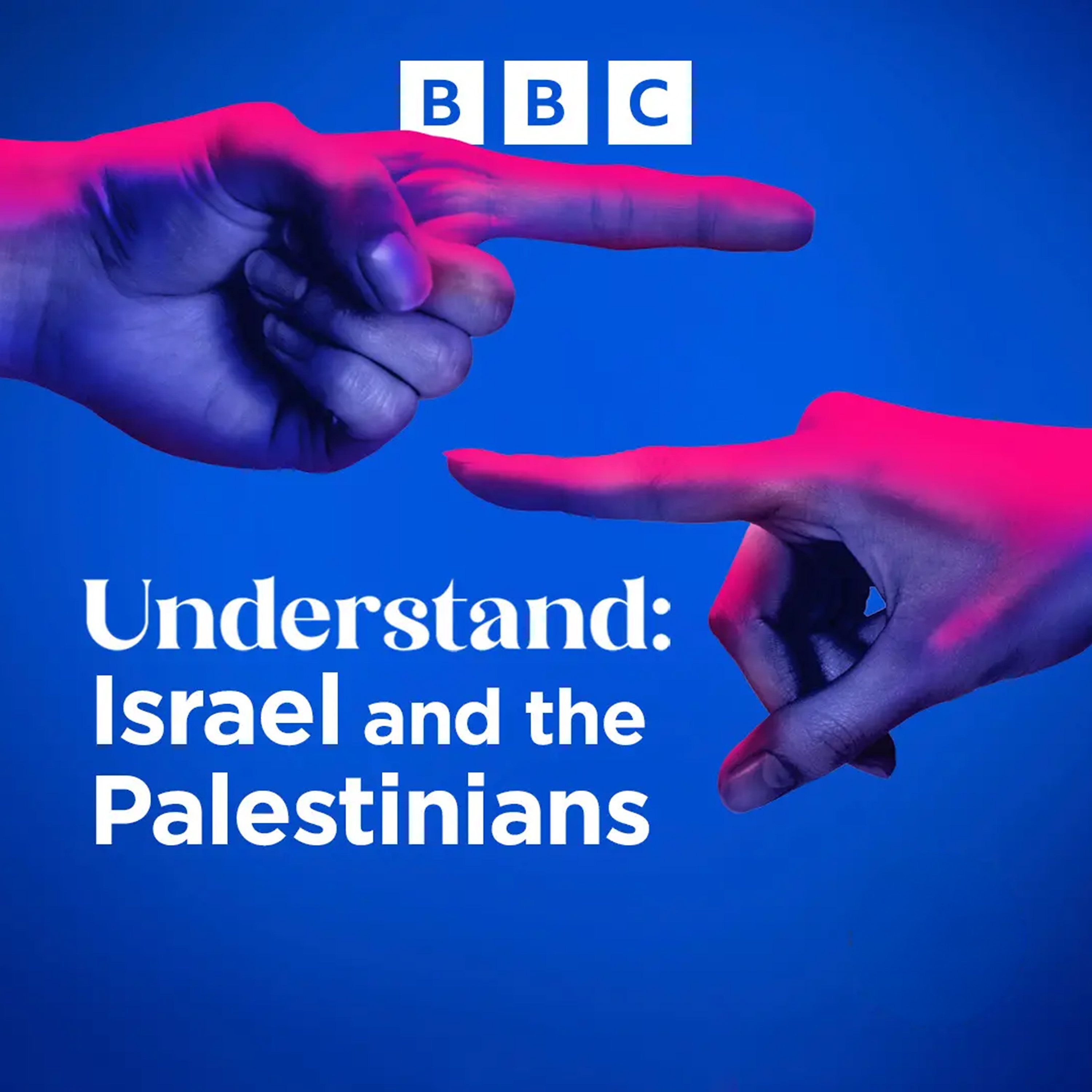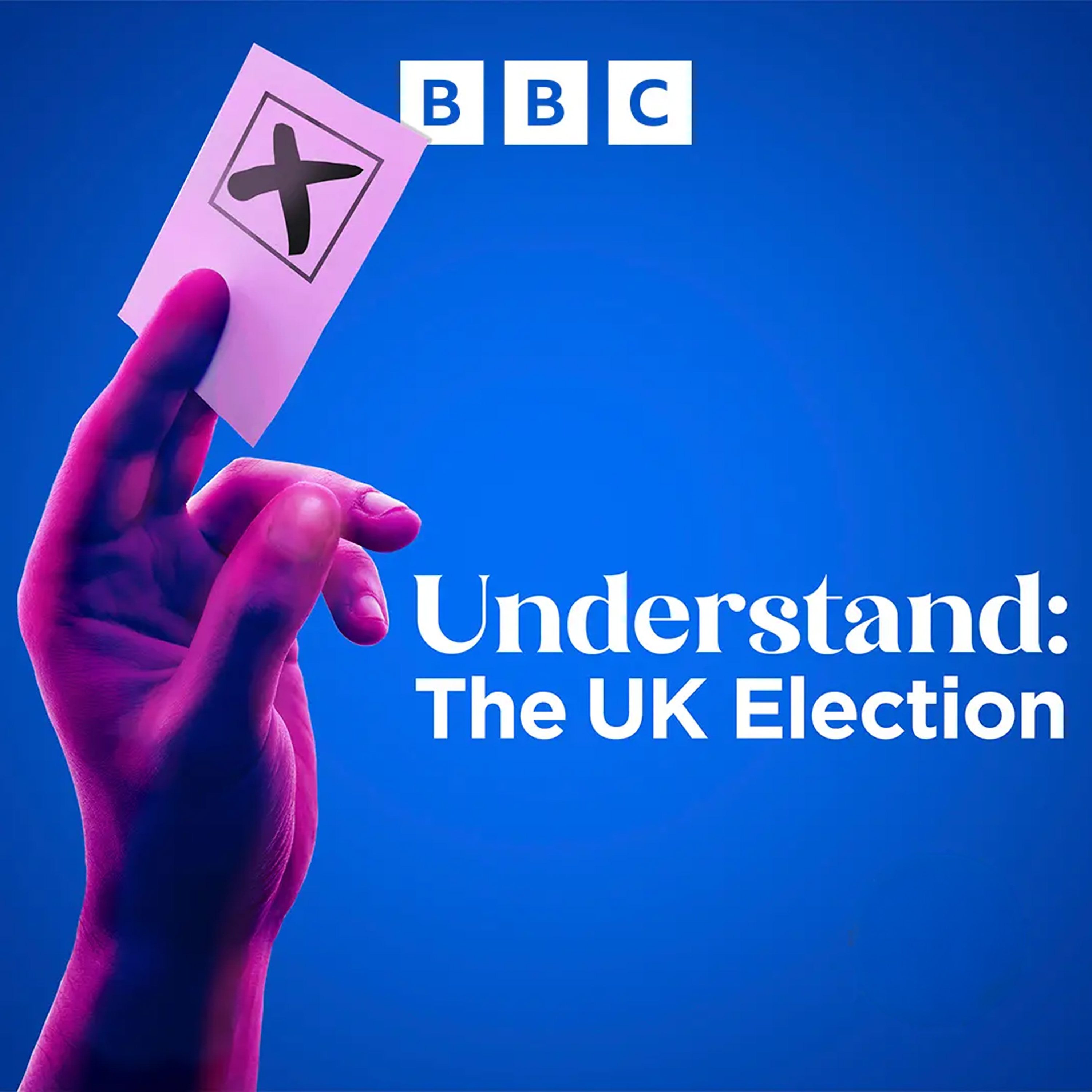Israel and the Palestinians: 4. The Neighbours
How do Lebanon, Hezbollah, Egypt and Jordan view Israel and the Palestinians? Katya Adler explains the history of the formation of Hezbollah and the role it plays in the region. The US, UK and EU have designated Hezbollah's military wing as a terrorist organisation but how is it viewed in Lebanon and the region? We take a tour of this Middle Eastern neighbourhood to set out the relationships that could determine the future of the conflict.
Press play and read along
Transcript
Speaker 1 This BBC podcast is supported by ads outside the UK.
Speaker 2 Cozy up with fragrance that feels like fall and smells unforgettable.
Speaker 2 Pura's smart, app-controlled diffusers pair with premium scents from brands like Nest New York, Capri Blue, Anthropology, and more.
Speaker 2 Whether you're craving spiced pumpkin, warm amber, or nostalgic woody notes, there's a scent to match every mood in every space. Discover why Pura is the go-to for premium home fragrance.
Speaker 2 Start your fall refresh now at Pura.com.
Speaker 1 Power up fall projects with Ego at Lowe's. Every tool delivers power beyond belief.
Speaker 1 So whether it's leaves, limbs, or lawn cleanup, count on Ego to deliver the power, performance, and innovation you need.
Speaker 1
And now for a limited time, save up to $60 on select blowers, chainsaws, and pole saws. Shop Ego today at Lowe's.
Offers valid at 10-1 while supplies last. Selection varies by location.
Speaker 3 BBC Sounds, Music, Radio, Podcasts.
Speaker 3 Hello, and welcome to Understand Israel and the Palestinians. I'm Katya Adler.
Speaker 3 In this series, we're giving you the background and a who's who guide to help you get to grips with the complexities of what's going on today.
Speaker 3 In previous episodes, we looked at the Palestinians, at Israel, and at Hamas.
Speaker 3 Today, we take a closer look at the neighbouring countries, Lebanon, Jordan, and Egypt. Spoiler alert, neighbourhood relations have a huge impact in this region.
Speaker 3 My guest today is Simon Wilson, former BBC Middle East Bureau Chief. We worked together for years during times of war and in times when there was talk about peace plans.
Speaker 3 Simon, please join me on this tour of countries that immediately surround Israel, the West Bank and Gaza. Let's start at the top of the clock face, shall we? North of Israel is Lebanon.
Speaker 3 Now, we do hear at times of rockets being fired into Israel from Lebanon. Who's firing them?
Speaker 1 Well, on that border, there's only one group that has control, which is Hezbollah. So anything that happens on that border either will be fired by Hezbollah or with the understanding of Hezbollah.
Speaker 3 Which begs the question, Simon, who are Hezbollah and when did they first appear on the scene?
Speaker 1 So Hezbollah were created in the 1980s with strong backing and funding and training from Iran as a liberation movement in their eyes to force Israel out of Lebanon.
Speaker 1 Now they've gone on to develop a political movement, a social movement, but their main strength is drawn from a very strong paramilitary force which controls now most of southern Lebanon and is widely believed to have the ability to have tens of thousands of rockets, to have highly trained fighters and are thought to pose the biggest immediate military threat to Israel.
Speaker 3 Simon, you mentioned that Hezbollah is backed and partly armed by Iran. We'll take a closer look at Iran's role in the region in our next episode.
Speaker 3 So turning back to Hezbollah, Israel, the UK, US and many other Western governments label it a terrorist group.
Speaker 3 It started as a military force, as we've said, but it also plays a political role in the leadership of Lebanon.
Speaker 1 Yeah, they absolutely do. There's a hugely complex political system which guarantees certain seats to certain ethnic and religious communities in Lebanon.
Speaker 1 But the net result is that Hezbollah sits in the government and has an effective veto politically. The scale of its military presence means that it is in many ways stronger than the Lebanese army.
Speaker 1 So a combination of that political presence, its social outreach, means that it has been described in many ways as a state within a state in southern Lebanon.
Speaker 3 When we look at what shaped Lebanon's relationship with Israel, you could look at Lebanon's opposition to the 1948 founding of Israel as an independent state. You could also go to the 1980s.
Speaker 3 That's when Israel invaded Lebanon. Israel says at the time it was targeting Palestinians, launching attacks from Lebanese territory, but it ended up occupying parts of Lebanon for nearly 20 years.
Speaker 1
Yes, so Lebanon as a country never accepted the state of Israel. And so in 1982, Israel invaded all the way up to Beirut.
There was fierce fighting, killing, and deaths on both sides.
Speaker 1 And people will remember, perhaps, Israel's Christian allies committing massacres in some of the Palestinian refugee camps in Beirut. So those memories are very fresh in southern Lebanon.
Speaker 1 And they are one of the reasons why Hezbollah has such strong support when it paints itself as the only force capable of defending the people of Lebanon from Israel.
Speaker 3 So, let's pick up on those Palestinian refugee camps you mentioned there with my next guest. The BBC's Middle East correspondent Lina Sinjab is currently in Beirut, in Lebanon.
Speaker 3 Lina, those refugee camps in southern Lebanon were meant to provide temporary housing for Palestinians, displaced when the State of Israel was declared, also in the aftermath of the Arab-Israeli War of 1967.
Speaker 3 We talked about all this in episode one of this series.
Speaker 3 But a lot of time has passed since then, and still half a million Palestinians remain in those camps.
Speaker 4 The Lebanese authorities have never granted any rights for the Palestinians to be integrated into Lebanon. They are still living in refugee camps, as you said.
Speaker 4 Yes, there are no tents there, but there are slums kind of areas that are in very poor conditions.
Speaker 4 You walk in, the sewage system is collapsing, there is no proper electricity, they don't have the right to work, there are limited work categories that they can work in, like driving or other minimum kind of job.
Speaker 4 Even if you graduate from the best universities and you have a doctoral certificate, you cannot practice in Lebanon.
Speaker 3 But Lina, there's so much sympathy and a sense of support for Palestinians amongst the people across the Arab world. So why haven't they been allowed to integrate more into Lebanon?
Speaker 4 It's the demographic question.
Speaker 4 Most of the Palestinians here in the camps are of Muslim-Sunni background, and this is a country that would like to maintain a power balance between its different sectarian groups in Lebanon.
Speaker 4 The Druze, the Sunni, the Shiat, and the Christians. So, integrating the Palestinians will shake the balance in Lebanon.
Speaker 3 Okay, and what are Lebanon's relations like with neighboring Israel these days? I covered the Israeli-Lebanon war back in 2006 at different times from both sides.
Speaker 3 And in one way or another, the situation has remained tense.
Speaker 4 Officially, it is at war with Israel. This is a country that doesn't have a peace agreement with.
Speaker 4 But, you know, also practically, the Lebanese government per se does not take a decision on what to do with Israel, nor the Lebanese army. It's Hezbollah that takes the sole decision.
Speaker 4 We've seen a war that was launched in 2006 that lasted for a whole month and destroyed infrastructure, especially in southern Lebanon, but left the whole country in fear of any future consequences.
Speaker 4 And that's exactly the feeling here today, despite great anger in the street against the Israelis and the attacks on civilians in Gaza.
Speaker 4 And many here would support Hezbollah action to widen this war against Israel.
Speaker 4 But there are lots of voices raising saying we don't want to be involved yet in another war, that we cannot pay the price of it. it.
Speaker 3
We'll move around now, clockwise again, to the next neighbor. To its east, Israel shares a border with Jordan.
So, Lina, what is Jordan's relationship like with Israel today?
Speaker 4 They had signed a peace treaty with the Israelis, they have an embassy in Jordan, they have relationships that are established between the two sides, and they've kept the border with Jordan pretty safe.
Speaker 4 And don't forget that almost 50% of the population in Jordan are of Palestinian origin.
Speaker 4 So, the government there really understands the mood in the street that is very much pro-Palestinians, but at the same time, they want to maintain to protect the border, they want to maintain peaceful relations with the Israelis while trying to find a sort of a political stance that doesn't fuel anger in the streets.
Speaker 3 And what's the mood on Jordan's streets now with the situation so volatile?
Speaker 4 There were protests, there were marches that they wanted to go to the borders.
Speaker 4 So, while they contain the anger in the streets, they still want to also be the political player in the region that does not open confrontation with the Israelis.
Speaker 3 As we know, Lena, in the Middle East, things can happen extremely fast. Can you imagine a trigger that could draw in any neighbours, however unwillingly, into this conflict?
Speaker 4 Well, exactly as you described, Katya, this is a region of the unpredictable.
Speaker 4 Any logic or any analysis or one plus one equals two could fly out of the window in a second if something happened or if one party decided to drag the whole country into a war.
Speaker 4 We never know what's going to happen or what's going to stop this. All the options are on the table, unfortunately.
Speaker 3 It is massively destabilizing in the region and beyond, actually, this current situation, isn't it?
Speaker 4 You know, unfortunately, as someone who's from the Middle East and lived here for most of my life, this is a region that doesn't come out of any crises.
Speaker 4 And this is a region that is of wars, of instability, and of governments that are using dictatorship over their own people.
Speaker 4 Yet, this is a region that is majority of youth, resources, and everything is wasted. So, there is anger on all fronts, and the least this region wants is yet another war.
Speaker 3
Thanks so much, Lina. For the next part of my trip, I'm going to bring back Simon Wilson as we move round south to Egypt.
Simon, can you tell us about Egypt's relationship with Israel?
Speaker 1 Like the other Arab neighbours, it completely rejected Israel when it was formed, fought a series of bloody wars against Israel, which resulted in the end with Egypt, it was the first of the Arab countries to sign a full peace agreement, recognizing the state of Israel, and that border since then broadly has been quiet.
Speaker 1 The other main factor involving Egypt was that until 1967, Egypt controlled the Gaza Strip, which we're now talking so much about today.
Speaker 1 Now, Egypt lost control of that in 1967, but because of that legacy, Egypt still has connections into the Gaza Strip and has always been a route of intelligence and other information that comes out of Gaza.
Speaker 3
Egypt is south of the Gaza Strip, and we keep hearing about the Rafah crossing. That is the crossing between Gaza and Egypt.
Simon, why does Egypt keep such tight control over this crossing?
Speaker 1 So Egypt would say that Gaza remains the responsibility of Israel. Also, Egypt says it doesn't have the capacity to deal with the number of Palestinians who might enter if there was no control there.
Speaker 1 The Sinai, which is the area due south of Israel, is broadly desert, is not a place where there is any particular infrastructure to accept them.
Speaker 1 Also, because of the history of the Palestinian groups who attack Israel, Egypt is very wary about importing any militant groups onto its own territory, which could risk firing up a conflict along a border which has broadly been quiet since Egypt made its own peace with Israel.
Speaker 3 What of the idea of solidarity with Palestinians and their desire to have their own state, their own homeland? You do hear people ask why aren't Arab countries, neighbouring countries, helping more?
Speaker 1 Well, Arab countries and their leaders are pulled in multiple directions.
Speaker 1 The power of the Palestinian issue to motivate the Arab street is enormous and you will see huge demonstrations on the street calling for full support up to and including military action to defend the Palestinians.
Speaker 1 Over the decades since Israel was founded, Egypt, Jordan, the other countries have fought a series of wars and they've broadly lost.
Speaker 1 So the leaders are very wary of getting involved in a conflict with Israel and they're therefore balancing the strong calls that come from their population against the realpolitik of what they're actually able to do.
Speaker 1 They're also pulled by geopolitical pressures from the United States. So Arab leaders have been pulled in multiple different directions and often not been able to fully resolve those tensions.
Speaker 3
Thanks Simon for introducing us to the Israeli-Palestinian neighbourhood. In our next episode we take a look at the big global players in the region.
I hope you can join us then.
Speaker 3 To catch up on our previous episodes on Life for Palestinians and for Israelis, find us on BBC Sounds. Search for Understand, Israel Israel and the Palestinians.
Speaker 5 Hello, I'm Tom Bateman, a BBC correspondent based here in Jerusalem.
Speaker 5 Now, as you've been hearing, this current conflict does have deep roots. And there's one period in particular that was foundational.
Speaker 1
It was a kind of bauge. There's one beautiful quote where one British official said, I loathe them all.
They are a beastly race. And he means Jews and Palestinians.
Speaker 3 There was a general perception in the Syrian population that the French were arrogant, brutal conquerors.
Speaker 1 This was the basis of everything that went wrong after that.
Speaker 5 So much happened in the three decades after the First World War when Britain and France were handed so-called mandates to govern this region that I've made a series about it.
Speaker 1
There was a a very strong negative reaction among the great majority of the population. It touched every fibre of my being.
I still feel it today.
Speaker 5 I've been speaking to people who lived through that critical period that shaped the modern Middle East and some of the historians who explain it best. The mandates is available now on BBC Sounds.


